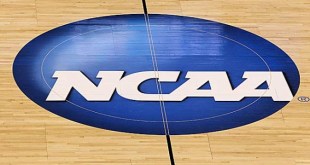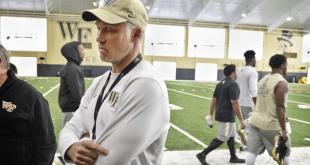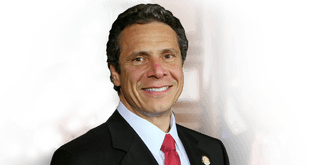Last week, some of the most distinguished lawyers of our generation gathered in a cramped Philadelphia federal courthouse for a hearing that could have a profound effect on the timeline to bring legal sports betting to the whole of the United States. While the results of the hearing remain to be determined, it appears – again – that most Americans will have to wait a bit longer to place a wager on their favorite club.
Background
In order to follow the complex and nuanced legal arguments raised by super lawyers Ted Olson and Paul Clement in front of 12 federal judges of the U.S. Third Circuit Court of Appeals, it’s critical to understand the procedural history regarding New Jersey’s recent attempts to legalize sports betting.
In 2012, New Jersey passed a law that permitted commercialized sports gambling at casinos and racetracks across the Garden State. The passage of the law was largely motivated by an effort to boost the state’s struggling economy through increased tax revenues and tourism.[i] New Jersey Governor Chris Christie’s efforts were stymied, however, by the NCAA and all four major U.S.-based professional sports leagues – the NFL, NBA, MLB, and NHL (the “Leagues”) – who, in August 2012, filed a lawsuit seeking to prevent the law from taking effect. According to the Leagues, New Jersey’s legislation violated a 1992 federal statute, the Professional and Amateur Sports Protection Act (“PASPA”), which restricted certain forms of state-sponsored sports gambling to a handful of states that were grandfathered in under the law.[ii] Christie, in turn, challenged that PASPA was unconstitutional, with arguments grounded in Tenth Amendment and Equal Sovereignty principles.
On February 28, 2013, the United States District Court for the District of New Jersey ruled against Christie, holding that PASPA was constitutional and preempted New Jersey’s sports betting law. On appeal, on September 17, 2013, the Third Circuit upheld the district court’s decision (“Christie I”). Despite its ruling, many interpreted the court’s majority opinion as having provided a “road map” for states to legalize sports betting without running afoul of PASPA. According to the court:
[PASPA] . . . leaves much room for states to make their own policy. Thus, under PASPA, a state may repeal its sports wagering ban, a move that will result in the expenditure of no resources or effort by any state official. On the other hand, a state may choose to keep a complete ban on sports gambling but it is left up to each state to decide how much of a law enforcement priority it wants to make of sports gambling, or what the exact contours of the prohibition will be.
Sensing an opportunity based on the language used by the court in its opinion, in 2014, New Jersey attempted an end-around. PASPA, among other things, expressly prohibits a governmental entity from promoting, licensing, or authorizing a betting scheme based on one or more competitive games in which amateur or professional athletes participate. Instead of approving legislation that would expressly authorize sports betting, New Jersey instead partially repealed its current state-law prohibitions against sports gambling, allowing it only in state-licensed and state-regulated casinos and racetracks. By partially repealing the state laws restricting sports betting, New Jersey argued that it was “deregulating” and essentially removing state control. Therefore, its partial repeal would not run afoul of PASPA’s prohibitions.
Unsurprisingly, the Leagues again challenged New Jersey’s newest law. According to the Leagues, permitting sports betting in state-licensed casinos and racetracks, New Jersey was not just authorizing sports gambling, but essentially licensing it as well. Last August, the Third Circuit again found in favor of the Leagues, holding that Christie can’t use “clever drafting” to sidestep PASPA (“Christie II”). “We acknowledge New Jersey’s salutary purpose in attempting to revive its troubled casino and racetrack industries,” the court’s opinion said. “We now turn to the primary question before us: whether the 2014 law violates PASPA. We hold that it does.”
Hearing En Banc
Seemingly left for dead, New Jersey was thrown a lifeline when the Third Circuit granted the state’s request for a hearing en banc - a rare review in which all or most of the sitting judges of the Third Circuit, not just the three judges that heard the initial case, weigh in. The hearing gave the full court the opportunity to resolve some of the apparent inconsistencies from the results of Christie I and Christie II.
At issue first was whether New Jersey’s 2014 partial repeal was sufficient to circumvent PASPA’s prohibitions on authorizing sports wagering. Olson, representing the state, ostensibly argued that the law that Christie signed in 2014 took the state out of the regulation business. He described New Jersey as “neutral” about whether Atlantic City casinos or state racetracks offer sports betting.
According to first-hand accounts, however, many judges seemed skeptical of this semantics-based argument. Judge Kent Jordan, for example, asked whether this was just a bait-and-switch tactic, since the law would only permit sports betting in casinos and racetracks, which were already under heavy state regulation. “It’s really just another way of authorizing,” Judge Jordan said. While the Leagues’ attorney, Clement, conceded that the state is free to completely repeal existing state gaming laws, by demarcating where and how sports wagering can take place, New Jersey’s law implicitly authorized a federally banned activity.[iii]
New Jersey seemingly gained more traction with the bench when Olson leaned more heavily on the constitutional issues in play.[iv] Under the Tenth Amendment, unless the U.S. Constitution delegates a legal power to the federal government, states reserve the right to exercise that power. As such, the Constitution’s “anti-commandeering principle” proscribes that, in the absence of conflicting federal regulation, states cannot be required to enforce policies dictated by the federal government that are at odds with state policies.[v]
According to New Jersey, PASPA does not forbid New Jersey from repealing its own state laws prohibiting sports betting. If, however, PASPA does not allow the state to repeal its state laws pertaining to sports betting, the federal government is requiring New Jersey to keep those laws on the books. As long as those state laws exist, New Jersey is required to enforce them. And if New Jersey is obligated to enforce its state laws, the federal government is forcing – “commandeering” – the state to use its resources to enforce a federal ban on sports betting that it clearly wants repealed. That, argued Olson, constitutes an explicit violation of the Tenth Amendment.
Outlook
It will likely be months until the Third Circuit issues its opinion, but like a slugger in baseball, Christie appears bound by one of three true outcomes in his most recent efforts to legalize sports betting in the state of New Jersey.
On one hand, the Third Circuit could conclude that New Jersey’s 2014 partial repeal did not amount to an implicit authorization of sports gambling and therefore did not violate PASPA. Of all the potential results, this would be a disastrous outcome from the Leagues’ perspective. The concept of legal sports betting has recently become more palatable for the Leagues, with forward-thinking NBA commissioner Adam Silver as repeatedly on record in support of working toward a comprehensive, federal overhaul to America’s sports gambling laws. What the Leagues do not want, however, is incremental, state-by-state legislation, particularly of the unregulated variety proposed by Christie. If New Jersey prevails, expect a number of states – including New Jersey’s Third Circuit brethren Delaware and Pennsylvania – to pass similar legislation. But, with the panel of judges expressing concern over sports gambling existing in an unregulated environment, as well as seeming dubious of New Jersey’s semantics-oriented argument, it seems unlikely that the current bench will green light New Jersey’s current partial repeal law.
Perhaps as a compromise of sorts, the court could also reverse the decision of Christie I by now holding that PASPA is indeed unconstitutional. Although New Jersey faces an uphill battle in prevailing on a constitutional challenge, its argument that PASPA violates the Tenth Amendment, by requiring the state to allocate its resources in a particular fashion and preventing the state from exercising its own powers, appeared to be better received by the panel of esteemed judges. The Leagues still would prefer to avoid piecemeal legislation, but if PASPA were to be overturned on constitutional grounds, states wishing to legalize sports gambling could then enact the regulatory framework necessary to mitigate the Leagues’ “integrity of the game” concerns. With proper regulations in place, the Leagues and state law enforcement could tightly monitor and control the American betting market, keeping an eye out for irregular betting activity that could indicate corruption.
Still, with New Jersey needing to persuade 7 of the 12 federal judges to rule in its favor on rehearing, another big swing-and-miss remains the most likely outcome for Christie. A federal solution remains the best course of action for all players involved, but another result in favor of the Leagues would allow Congress to once again kick the proverbial can down the road. The legalization of sports gambling may still be “inevitable,” as many scholars have posited, but another loss by New Jersey may once again push back the timeline for any substantial change.
As any attorney will tell you, predicting a court’s decision based on questioning at oral argument is often a fool’s errand. Any of the three true outcomes described above would not come as a surprise. Yet, it’s hard not to think that, to borrow a phrase form Yogi Berra, “it’s like déjà vu all over again.”
[i] The implementation of sports gambling was forecasted to generate millions of dollars in tax revenue for New Jersey, as well as resuscitate a stagnant tourism industry by reestablishing Atlantic City as the premier gambling destination on the East Coast.
[ii] Nevada, Delaware, Oregon and Montana were all permitted to continue the sports-related gambling operations that were already in place in their states, with Nevada being granted the widest scope and the others limited to certain sports-gambling “lottery” games. S. Rep. 102-248 (1991).
[iii] Judge Marjorie Rendell, in Christie II, also took issue with the “selective” nature of New Jersey’s partial repeal law, which allowed sports gambling to take place only at casinos and racetracks. In the majority opinion, Judge Rendell concluded that the state’s “selectiveness constitutes specific permission and empowerment,” which transforms the partial repeal law into an “authorization” for purposes of PASPA.
[iv] Facing a constitutional challenge, the Christie I court held that PASPA indeed passed constitutional muster. The constitutionality question therefore was not considered by the Christie II court. It came as a surprise to many when Judge Marjorie Rendell pointedly noted at the rehearing en banc that “Christie I is now in play” – meaning that because a dozen judges had taken up the matter on rehearing, the court wasn’t bound by the first Third Circuit ruling (Christie I). Judge Kent Jordan likewise referenced the decision in Christie I as being “on the table.”
[v] Put another way, the anti-commandeering principle forbids Congress from ordering states or their political subdivisions to take affirmative action to govern or regulate in a particular way. But it does not forbid Congress, in its regulation, to forbid states from regulating in a particular way (or perhaps in a particular field at all), so long as Congress is acting within its constitutionally enumerated powers. New York v. United States, 505 U.S. 144, 188 (1992); Printz v. United States, 521 U.S. 898 (1997)
 The Sports Esquires Putting Sports on Trial
The Sports Esquires Putting Sports on Trial






2 comments
Pingback: Sports Law Links - The Sports Esquires
Pingback: Federal Action Unlikely After Congressional Hearing on Daily Fantasy Sports - The Sports Esquires